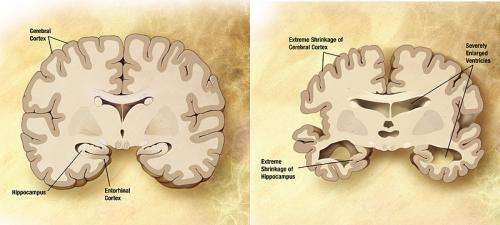Antiepileptic drugs are associated with a higher risk of mortality in persons with Alzheimer’s disease


The use of antiepileptic drugs is associated with a higher risk of death among persons with Alzheimer’s disease, according to a new study from the University of Eastern Finland. The results were published in Neurology. The mortality risk increased considerably during the first three months of treatment with antiepileptic drugs, and was higher among users of older antiepileptic drugs in comparison to users of newer antiepileptics. The risk of death remained elevated after exclusion of people with epilepsy in the sensitivity analyses.
The increased risk remained after controlling for comorbidities, sociodemographic factors and the use of other drugs. However, it is possible that the reasons for initiating an antiepileptic partially explain the results and, therefore, the findings should be confirmed in further studies.
These initial findings are concerning, as people with Alzheimer’s disease used antiepileptic drugs more frequently than people without the disease, and the use of older antiepileptics is more common among them. The association between antiepileptic use and mortality in this population has not been studied before.
The results highlight caution in prescribing these drugs for indications other than epilepsy in this vulnerable group. Up to 1% of the population needs chronic antiepileptic treatment to control epilepsy. These drugs are also frequently used for other indications, including neuropathic pain and behavioral and psychological symptoms of dementia, although antiepileptics are not officially indicated for behavioral and psychological symptoms of dementia.
Source: Read Full Article